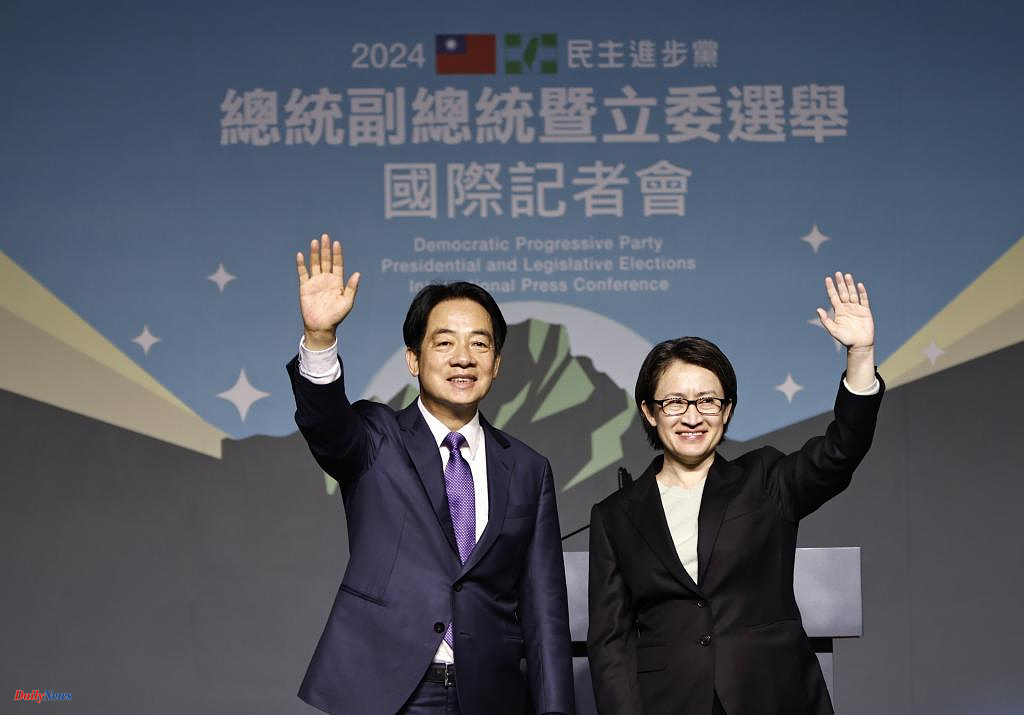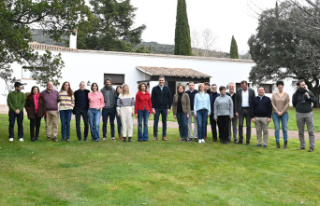From a poor mining background to becoming the boss of a vibrant democracy threatened by a powerful neighbor. Lai Ching-Te's political career began in 1996, when Taiwan held its first completely free elections. A decade earlier, he began to take the pulse of the streets by participating in protests against the anti-communist dictatorship that had ruled the island for 40 years.
He studied Medicine and, thanks to a scholarship, earned a master's degree in Public Health at Harvard. He returned to his homeland as a medical consultant expert in spinal cord injuries, but before entering his thirties he hung up his robe to make his way as a legislator in the Taiwanese Parliament.
Lai (64 years old), the son of a miner, can boast of having gone through almost all levels of Taiwanese politics. From rank and file to two-term mayor of the southern city of Tainan; from prime minister to vice president. He now faces the greatest possible challenge: leading a nation that functions de facto as a totally independent country, but whose sovereignty is recognized by only 13 countries around the world.
Hundreds of thousands of people gathered in the heart of Taipei on Saturday to celebrate Lai's victory in the presidential election. His formation, the Democratic Progressive Party (PDP), won with more than 40% of the votes.
A result that does not please China at all, where a few days ago they defined Lai as a "danger" to peace in the Taiwan Strait. In Beijing they do not forget a 2018 speech by the new president-elect in which he described himself as a "pragmatic worker for Taiwan independence."
During the campaign, Lai toned down his tone. He moderated his speech and omitted any reference to the island's formal independence, citing only his staunch defense of maintaining the current status quo. What Lai did do was present his figure as a choice between democracy and autocracy, arguing that he was the only one capable of protecting Taiwan's autonomy and democracy.
Lai will have to wait until May to officially take over from her boss, President Tsai Ing-wen. A continuity policy is expected from the new leader: betting heavily on the rearmament of Taiwan, reducing economic dependence on China and continuing to strengthen ties with the United States and other large liberal democracies.
Like Tsai, the new president is clear that the alliance with Washington - the island's main weapons supplier - is key to guaranteeing Taiwan's security. Last August, on his way to Paraguay, Lai made a brief stop in New York to give a rally to 700 Taiwanese Americans.
"No matter how great the threat of totalitarianism is to Taiwan, we will never be afraid to retreat and must defend the values of democracy and freedom. When the Chinese people seek freedom, democracy and human rights, they regard Taiwan as a shining beacon "he blurted out.
In other statements, the politician expressed his hope that, one day, the president of Taiwan would be received in the White House, something that, if it occurred, would break with precedent and provoke a forceful military response from Beijing.
Lai will also try during his command to seek a stronger relationship with Japan, another actor that could be decisive in the event that Beijing tries to forcibly carry out the long-awaited "reunification" with what it considers a separatist province.
He made his foreign policy intentions quite clear by choosing Hsiao Bi-khim, Taiwanese ambassador in Washington from 2020 to 2023, as his running mate, who will be the new vice president.
Hsiao, one of Beijing's great scourges in recent years, worked closely behind the scenes with both the Trump and Biden administrations to strengthen ties between Taipei and the world's leading power.
At home, one of the big bets will be to continue improving, with the help of Washington, the country's defenses. A path that Tsai began by increasing the defense budget, extending mandatory military service from four months to one year, the purchase of modern missiles and the development of its own weapons such as drones and submarines.
The new president, despite promising to continue with the reforms of the previous Government, has a more conservative profile than Tsai, with whom he competed in the race for the presidential candidacy in the last 2020 elections. Lai lost because his image did not match with the ideology of a modern and progressive candidate that his party's voters demanded. He also got into more than one puddle, such as when he attributed the spread of HIV to the gay community.












